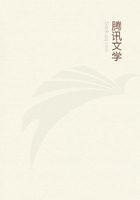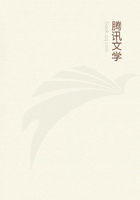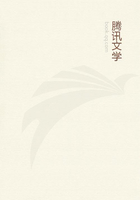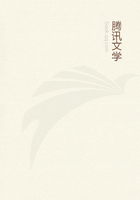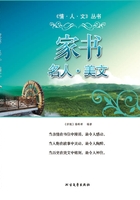EUTHYPHRO: I am amused, Socrates, at your making a distinction between one who is a relation and one who is not a relation; for surely the pollution is the same in either case, if you knowingly associate with the murderer when you ought to clear yourself and him by proceeding against him. The real question is whether the murdered man has been justly slain. If justly, then your duty is to let the matter alone; but if unjustly, then even if the murderer lives under the same roof with you and eats at the same table, proceed against him. Now the man who is dead was a poor dependant of mine who worked for us as a field labourer on our farm in Naxos, and one day in a fit of drunken passion he got into a quarrel with one of our domestic servants and slew him. My father bound him hand and foot and threw him into a ditch, and then sent to Athens to ask of a diviner what he should do with him. Meanwhile he never attended to him and took no care about him, for he regarded him as a murderer; and thought that no great harm would be done even if he did die. Now this was just what happened. For such was the effect of cold and hunger and chains upon him, that before the messenger returned from the diviner, he was dead. And my father and family are angry with me for taking the part of the murderer and prosecuting my father. They say that he did not kill him, and that if he did, the dead man was but a murderer, and I ought not to take any notice, for that a son is impious who prosecutes a father. Which shows, Socrates, how little they know what the gods think about piety and impiety.
SOCRATES: Good heavens, Euthyphro! and is your knowledge of religion and of things pious and impious so very exact, that, supposing the circumstances to be as you state them, you are not afraid lest you too may be doing an impious thing in bringing an action against your father?
EUTHYPHRO: The best of Euthyphro, and that which distinguishes him, Socrates, from other men, is his exact knowledge of all such matters. What should I be good for without it?
SOCRATES: Rare friend! I think that I cannot do better than be your disciple. Then before the trial with Meletus comes on I shall challenge him, and say that I have always had a great interest in religious questions, and now, as he charges me with rash imaginations and innovations in religion, I have become your disciple. You, Meletus, as I shall say to him, acknowledge Euthyphro to be a great theologian, and sound in his opinions; and if you approve of him you ought to approve of me, and not have me into court; but if you disapprove, you should begin by indicting him who is my teacher, and who will be the ruin, not of the young, but of the old; that is to say, of myself whom he instructs, and of his old father whom he admonishes and chastises. And if Meletus refuses to listen to me, but will go on, and will not shift the indictment from me to you, I cannot do better than repeat this challenge in the court.
EUTHYPHRO: Yes, indeed, Socrates; and if he attempts to indict me I am mistaken if I do not find a flaw in him; the court shall have a great deal more to say to him than to me.
SOCRATES: And I, my dear friend, knowing this, am desirous of becoming your disciple. For I observe that no one appears to notice you--not even this Meletus; but his sharp eyes have found me out at once, and he has indicted me for impiety. And therefore, I adjure you to tell me the nature of piety and impiety, which you said that you knew so well, and of murder, and of other offences against the gods. What are they? Is not piety in every action always the same? and impiety, again--is it not always the opposite of piety, and also the same with itself, having, as impiety, one notion which includes whatever is impious?
EUTHYPHRO: To be sure, Socrates.
SOCRATES: And what is piety, and what is impiety?
EUTHYPHRO: Piety is doing as I am doing; that is to say, prosecuting any one who is guilty of murder, sacrilege, or of any similar crime--whether he be your father or mother, or whoever he may be--that makes no difference;and not to prosecute them is impiety. And please to consider, Socrates, what a notable proof I will give you of the truth of my words, a proof which I have already given to others:--of the principle, I mean, that the impious, whoever he may be, ought not to go unpunished. For do not men regard Zeus as the best and most righteous of the gods?--and yet they admit that he bound his father (Cronos) because he wickedly devoured his sons, and that he too had punished his own father (Uranus) for a similar reason, in a nameless manner. And yet when I proceed against my father, they are angry with me. So inconsistent are they in their way of talking when the gods are concerned, and when I am concerned.
SOCRATES: May not this be the reason, Euthyphro, why I am charged with impiety--that I cannot away with these stories about the gods? and therefore I suppose that people think me wrong. But, as you who are well informed about them approve of them, I cannot do better than assent to your superior wisdom. What else can I say, confessing as Ido, that I know nothing about them? Tell me, for the love of Zeus, whether you really believe that they are true.
EUTHYPHRO: Yes, Socrates; and things more wonderful still, of which the world is in ignorance.
SOCRATES: And do you really believe that the gods fought with one another, and had dire quarrels, battles, and the like, as the poets say, and as you may see represented in the works of great artists? The temples are full of them; and notably the robe of Athene, which is carried up to the Acropolis at the great Panathenaea, is embroidered with them. Are all these tales of the gods true, Euthyphro?
EUTHYPHRO: Yes, Socrates; and, as I was saying, I can tell you, if you would like to hear them, many other things about the gods which would quite amaze you.

